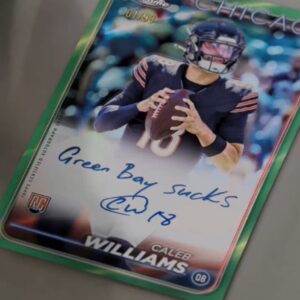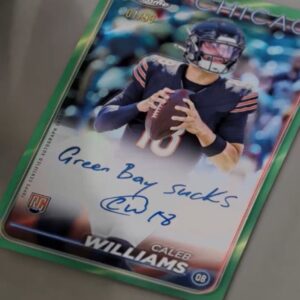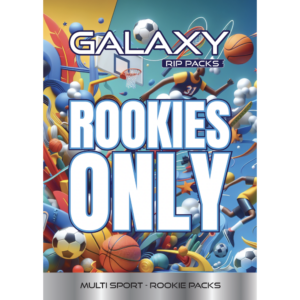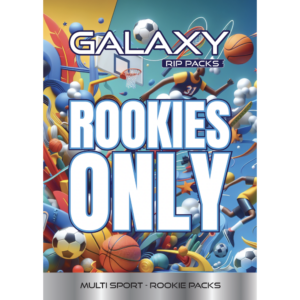In a surprising move, Industrial Inspection & Consulting has unveiled a new service offering CT scans of sealed packs of trading cards for $75. Originally intended to showcase their CT scanning technology’s precision, the service has now become a popular topic within the collecting community.
Just recently, Industrial Inspection gained attention by scanning a sealed pack of Pokémon cards, highlighting the capabilities of their technology. Despite initially indicating no plans to launch a card scanning service, the company’s decision to pivot and include trading cards in their CT scanning services has raised eyebrows.
Service Details
For a fee of $75, Industrial Inspection will conduct CT scans on sealed packs of trading cards and provide the necessary viewing program to analyze the contents. There are intentions to expand this service to include sealed boxes in the near future.
Industry Responses
The collecting community has displayed mixed reactions to the introduction of this innovative technology. Some industry experts are skeptical about the service’s widespread adoption, suggesting its relevance may be limited to high-end products. Concerns have been raised about whether collectors will have the expertise to interpret the scans effectively.
Keith Irwin, the general manager of Industrial Inspection, mentioned that the company received an influx of ten requests to scan packs within the first two hours of their initial case study being shared on YouTube. Since then, the traffic to their website has seen a remarkable increase of over 17,000 percent.
“We’ve witnessed a tremendous amount of interest,” Irwin shared. “It’s not only from individuals and collectors but also from auction houses. It appears that everyone is intrigued; everyone wants to be part of it. If we don’t offer this service, someone else surely will.”
While Irwin refrained from disclosing further details due to non-disclosure agreements, he noted that most inquiries have centered around the technology’s capabilities. There is speculation that group breakers might utilize this technology to identify and retain the best boxes, while others contemplate its application in authenticating vintage sealed boxes.
Community Concerns
The collecting community is apprehensive about the implications of this unique technology. Until the recent case studies, many collectors were unaware of the possible application of X-ray technology in this manner. The ability to have packs scanned for $75 has sparked significant debate among collectors.
A significant portion of the community has condemned the practice, but Irwin and Industrial Inspection argue that it is crucial to make the service accessible to all collectors, not just those involved in high-end collecting.
“We aim to provide this service to everyone,” Irwin emphasized. “We strive to be the positive influence in an area that is here to stay. If we refrain from offering this service, others will, potentially in less ethical ways.”
Ethical Considerations
The introduction of this service has brought forth numerous ethical and moral dilemmas. While collaborating with auction houses or authenticators could be viewed as beneficial, it also runs the risk of limiting access for individual collectors who wish to verify their collections. Distinguishing between positive and negative use cases of this technology poses a significant challenge.
The potential impact on the secondary market, particularly for high-end products, is substantial. While scanning packs or boxes of lower-tier products may not be cost-effective, for vintage sports cards, early Pokémon releases, and upscale modern sets, the technology could be a game-changer.
It remains uncertain whether major trading card manufacturers are taking steps to safeguard customers against potential misuse of this technology. Requests for comments from Panini America, Topps, and Upper Deck have yet to be answered.
Future of Card Scanning
Irwin expressed that Industrial Inspection could thrive even without the card scanning service, though it presents a lucrative revenue stream. One potential solution for card manufacturers could involve the use of dosimeter stickers that change color upon exposure to radiation, indicating whether a box has been scanned.
For the time being, Industrial Inspection intends to proceed with scanning packs and eventually boxes. They may also offer to scan encapsulated sealed packs for collectors who wish to open them.
Regardless of the services provided, the ethical and moral implications will remain a persistent issue for Industrial Inspection. The company’s website conveys an acknowledgment that “Pandora’s box is open,” an sentiment shared by many collectors.
“We’ve definitely struck a chord within the community,” Irwin remarked. “People have invested a great deal in these industries, prompting us to question if we have made the right decision. However, if we hadn’t brought this to light and offered it as a service, people may resort to clandestine methods. We are in a position where inaction is wrong, yet action is also perceived as problematic.”






